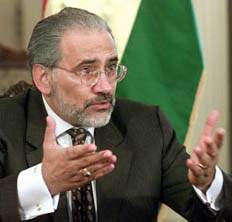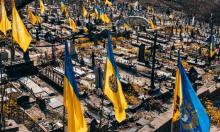Should I stay or should I go?
After seriously weighing his resignation on Thursday, Bolivian President finally decided to stay in office
Embattled, weakened and only supported by a handful of lawmakers in the Congress, the military and the Catholic clergy, Bolivian President Carlos Mesa finally decided to stay in office after two days of rumours about his resignation. Mesa aired the announcement late in Thursday night hours after the Congress rejected his bill to call on early elections bringing them forward by two years.
Before making public his last decision, Mesa met military leaders and prominent church leaders in what looks like an attempt to set forward a plan to face the incoming continuity of protests, which have virtually brought the country to a standstill in recent weeks. "I am not going to run away from my responsibilities", declared Mesa, who had also offered his resignation last week in an attempt to regain lost political initiative.
Unlike last week, Mesa comes out from this last crisis weakened and in a position fully undermined to complete his mandate which expires in 2007. Only one week ago, Congress leaders supported him, but not now, after two serious setbacks there in 72 hours.
The first one came on Tuesday when the lower chamber passed a new energy law that meets leftist opposition demands better than government conditions. The law, which still has to be ratified by the Senate, raises taxes to oil foreign corporations from 18% to 50%, something that Mesa considers unviable and the beginning of “Bolivia's isolation from the international community”.
Lower chamber's decision was welcomed by the leftist opposition led by farmer leader Evo Morales, who rushed to call on the end of the strikes and road-blockades. Morales, also celebrated Mesa’s decision to stay as an own victory ahead of 2006 elections that counts him as one of the favourites.
The second setback came yesterday, when the Congress rejected Mesa's bill to call on early elections.
Key to the protests was a demand for higher taxes on foreign energy companies exploiting Bolivia's vast natural gas reserves, which are the among the largest in the western hemisphere. Violent protests over gas exports forced President Mesa's predecessor to flee the country nearly two years ago.
Subscribe to Pravda.Ru Telegram channel, Facebook, RSS!





